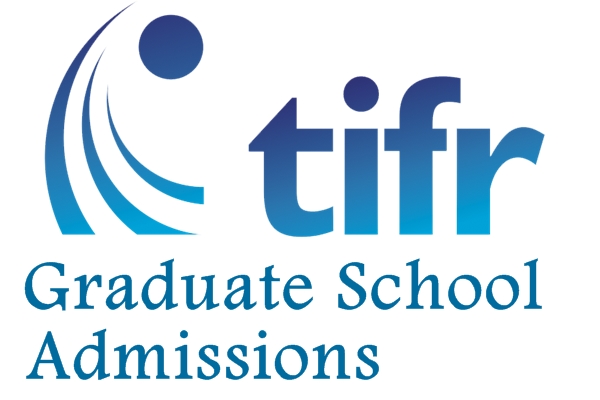



|
Tweet
Pin
It
|
The admission procedure for all subjects excluding Science Education consists of written test (usually having objective type questions) followed by interviews. The written tests are held at the centres specified by the institute.
The Biology written test is held on a specific Sunday in December each year at centres all over India. The test consists of multiple choice questions covering basics in physics, chemistry, maths and biology.
The syllabus for written test in Chemistry follows the normal syllabus followed by Indian Universities at BSc and MSc levels. The questions cover areas like physical, organic, inorganic, analytical, electro and quantum chemistry, biophysics, thermodynamics, spectroscopy (NMR, fluorescence, IR, UV and X-ray), logic and statistics and mathematical methods.
The syllabi for admission test in Physics comprises of the following topics - classical mechanics, mathematics relevant to physics, electricity and magnetism, quantum mechanics, heat, thermodynamics and statistical physics, general physics, modern physics, electronics and experimental physics.
The syllabi for test in mathematics covers topics dealt with during a normal BSc course in Mathematics. It is comprised of
Algebra -definitions and examples of groups-finite and infinite, commutative and non-commutative, cyclic groups, subgroups, homomorphisms, quotients, definitions and examples of rings and fields. Basic facts about finite dimensional vector spaces, matrices, determinants and ranks of linear transformations. Integers and their basic properties, polynomials with real or complex coefficients in 1 variable.
Analysis -Basic facts about real and complex numbers, convergence of sequences and series of real and complex numbers, continuity, differentiability and Reimann integration of real valued functions defied on an interval (finite or infinite), elementary functions (polynomial functions, rational functions, exponential and log, trigonometric functions)
Geometry/ Topology - Elementary geometric properties of common shapes and figures in 2 and 3 dimensional Euclidean spaces(eg triangles, circles, discs, spheres etc.). Plane analytic geometry(= coordinate geometry) and trigonometry. Definition and basic properties of metric spaces, examples of subsets of Euclidean spaces (of any dimension), connectedness, compactness. Convergence in metric spaces, continuity of functions between metric spaces.
General - Pigeon-hole principle (box principle), induction, elementary properties of divisibility, elementary combinatorics (permutations and combinations, binomial coefficients), elementary reasoning with graphs.
For Computer and Systems Sciences there are two streams-one in the area of Computer Science and the other in the area of Systems Science. The question paper is composed of three parts-A,B and C. Part A is common for all and tests the general mathematical aptitude of the candidate, and the students need to attempt only one of the parts B or C .
Part B will have questions in Computer Science. The topics covered here are - 1.Discrete Mathematics (Sets and relations, Combinations (Counting) and Elementary Probability Theory, Graph Theory, Propositional and Predicate Logic) 2.Formal Languages, Automata Theory and Computability 3.Data Structures and Algorithms (Arrays, Lists and Trees), Sorting and Searching, Graph algorithms, Complexity of problems and NP-completeness. 4.Fundamentals of Programming Languages and Compliers (Control structures, parameter passing mechanisms, recursion, parsing and type checking, memory management) 5.Operating Systems and Concurrency 6.Switching Theory and Digital Circuits 7. Theory of Databases.
Part C has questions in Systems Science. The topics covered here are 1.Mathematics (Complex Analysis, Linear Algebra, Elementary Numerical Analysis, Introduction to Probability Theory and Statistics)
2. Electrical and Computer Sciences (Introduction to Signals and Linear Systems Analysis, Introduction to Digital Communications, Digital Computer Fundamentals, Introduction to Computer Programming)
The list of students short listed for the interview and the exact date of interview is announced by the institute. The interview is usually conducted during end-February to early-April. However, the entrance test and interviews in Science Education are conducted independently by Homi Bhabah Centre for Science Education (HBCSE), Mumbai. Applicants should check the website of the institute for regular updates.
Exam centres
• Bangalore
: National Centre for Biological Sciences
• Bhubaneshwar
: Utkal University
• Chandigarh
: Panjab University
• Chennai : Indian
Institute of Technolgoy
• Cochin : Cochin
University of Science & Technology
• Delhi : Delhi
University (Department of Physics / Chemistry / Zoology / Anthropology)
• Guwahati :
Indian Institute of Technology
• Hyderabad :
Hyderabad University
• Indore : Devi
Ahilya Vishwavidyalaya
• Kanpur : Indian
Institute of Technology
• Kolkata : Goenka
College of Commerce & Business Administration
• Mumbai : Tata
Institute of Fundamental Research
Find it Useful ? Help Others by Sharing Online
Comments and Discussions |
Related
Entrance Exams
|
|||
|
|